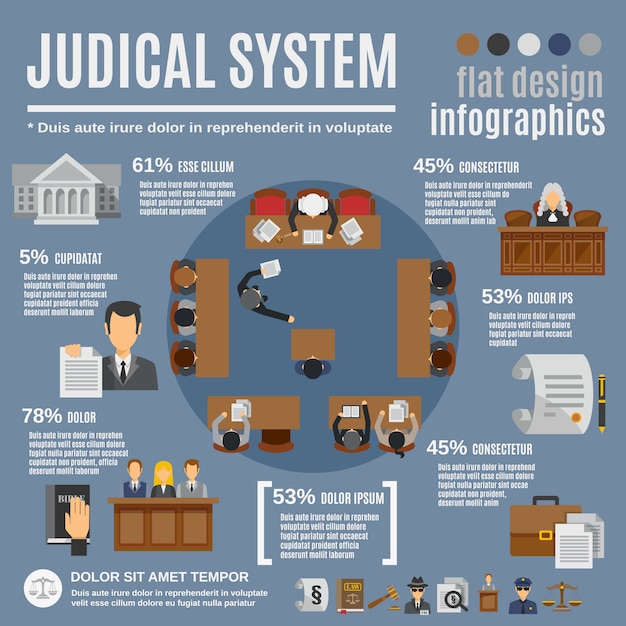Usual Misconceptions About Criminal Protection: Debunking Misconceptions
Usual Misconceptions About Criminal Protection: Debunking Misconceptions
Blog Article
Web Content Develop By-Sanders Dixon
You've probably heard the myth that if you're charged with a crime, you have to be guilty, or that remaining quiet ways you're concealing something. These extensive beliefs not just misshape public assumption yet can also influence the results of lawful proceedings. It's important to peel back the layers of misunderstanding to recognize truth nature of criminal defense and the legal rights it shields. Suppose you recognized that these misconceptions could be taking down the very foundations of justice? Join the conversation and discover exactly how disproving these misconceptions is vital for guaranteeing fairness in our legal system.
Myth: All Offenders Are Guilty
Typically, people wrongly think that if somebody is charged with a crime, they need to be guilty. You may presume that the lawful system is infallible, yet that's far from the fact. Charges can stem from misconceptions, incorrect identifications, or not enough proof. It's critical to keep in mind that in the eyes of the legislation, you're innocent up until tried and tested guilty.
This anticipation of virtue is the bedrock of the criminal justice system. It ensures that the burden of proof lies with the prosecution, not you. They have to develop past a practical question that you dedicated the criminal activity. This high basic secures people from wrongful sentences, making sure that no person is punished based on presumptions or weak proof.
Moreover, being charged does not indicate the end of the road for you. You deserve to defend yourself in court. This is where a proficient defense attorney enters play. They can test the prosecution's instance, existing counter-evidence, and advocate in your place.
The intricacy of lawful proceedings typically needs skilled navigation to guard your rights and attain a fair end result.
Misconception: Silence Equals Admission
Many believe that if you select to remain silent when charged of a crime, you're basically admitting guilt. However, this couldn't be additionally from the fact. Your right to continue to be quiet is shielded under the Fifth Amendment to prevent self-incrimination. https://www.mlive.com/news/ann-arbor/2022/07/4-vying-to-be-next-14a-district-court-judge-in-washtenaw-county.html 's a legal secure, not a sign of sense of guilt.
When you're silent, you're in fact exercising an essential right. This avoids you from saying something that might accidentally hurt your defense. Bear in mind, in the heat of the minute, it's easy to obtain overwhelmed or speak improperly. Law enforcement can analyze your words in ways you didn't plan.
By staying silent, you give your legal representative the very best possibility to defend you effectively, without the difficulty of misinterpreted declarations.
Moreover, it's the prosecution's work to prove you're guilty past an affordable doubt. linked resource site can not be utilized as evidence of regret. As a matter of fact, jurors are advised not to interpret silence as an admission of shame.
Misconception: Public Protectors Are Inadequate
The false impression that public protectors are inefficient continues, yet it's important to understand their essential duty in the justice system. good criminal attorneys believe that due to the fact that public defenders are frequently overloaded with situations, they can't give top quality protection. Nevertheless, this forgets the deepness of their devotion and proficiency.
Public protectors are totally accredited attorneys who've selected to focus on criminal regulation. They're as qualified as exclusive legal representatives and commonly much more seasoned in test job because of the volume of instances they handle. You could assume they're much less determined because they do not choose their clients, but actually, they're deeply committed to the ideals of justice and equal rights.
It is necessary to bear in mind that all legal representatives, whether public or private, face challenges and restrictions. Public protectors commonly collaborate with less resources and under even more pressure. Yet, they regularly show durability and imagination in their protection strategies.
Their role isn't just a task; it's a mission to make certain that everyone, regardless of income, obtains a fair trial.
Conclusion
You may think if somebody's charged, they should be guilty, but that's not just how our system functions. Choosing to stay silent does not suggest you're confessing anything; it's just smart self-defense. And don't undervalue public protectors; they're committed professionals committed to justice. Bear in mind, everybody is entitled to a reasonable trial and knowledgeable depiction-- these are fundamental rights. Allow's drop these misconceptions and see the lawful system of what it truly is: a location where justice is sought, not just punishment dispensed.
